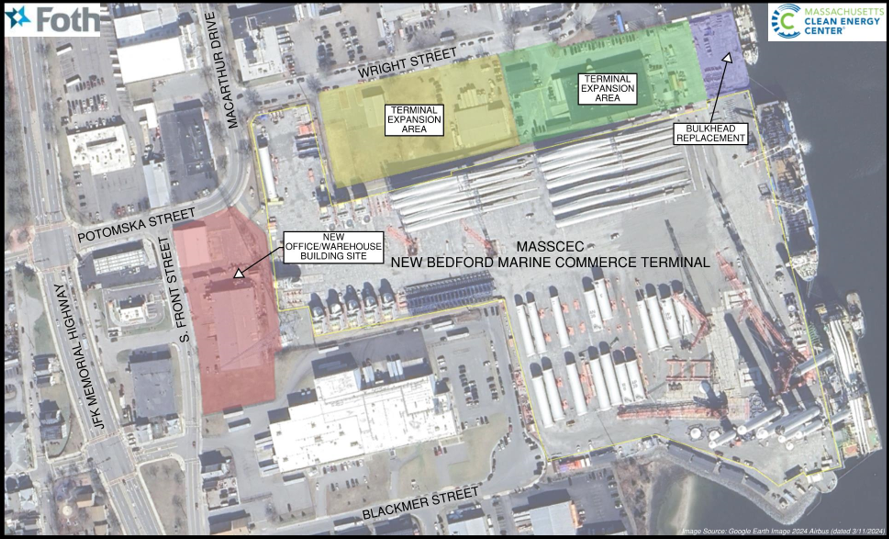The terminal, spanning 30 acres (121,406 square meters), is built and operated by MassCEC and supports the construction, assembly, and deployment operations for offshore wind projects.
According to MassCEC, the expansion is necessary to maintain and increase Massachusetts’s competitiveness in the offshore wind industry. The upgrade will enable the terminal to handle larger, heavier offshore wind turbine components, meeting the anticipated increased demand for port facilities.
“One of MassCEC’s top priorities is to support the growing offshore wind industry in Massachusetts through the strategic development of port infrastructure,” said Emily Reichert, Massachusetts Clean Energy Center CEO. “The New Bedford Marine Commerce Terminal has provided the area necessary to stage one of the nation’s first commercial-scale offshore wind projects, and this expansion will position the site as a long-term clean energy asset for the Commonwealth.”
To upgrade and expand the terminal, MassCEC will acquire four adjacent properties, redevelop an existing bulkhead with a new high-bearing capacity quayside, and build a new office and warehouse building.
Completion of the expansion will increase the available heavy-lift storage area by 24%, enhance the total heavy-lift quayside available at the terminal, and provide additional office and warehouse space for tenants. The project is anticipated to be completed by December 2026.
In December 2022, Massachusetts’s Baker-Polito administration awarded USD 180 million for offshore wind development projects, including USD 45 million for New Bedford Marine Commerce Terminal improvements.
Of the remaining 2022 funding, USD 15 million was awarded to the New Bedford Port Authority, USD 15 million to New Bedford Foss Marine Terminal for site redevelopment to support offshore wind logistics, and USD 75 million to Crowley for converting an industrial port in Salem to support floating wind development.
The construction of the offshore wind terminal in Salem has started, with the groundbreaking ceremony held on 15 August. The Salem Offshore Wind Terminal is also expected to be operational in 2026.

ADVERTISE ON OFFSHOREWIND.BIZ
Get in front of your target audience in one move! OffshoreWIND.biz is read by thousands of offshore wind professionals daily.
Follow offshoreWIND.biz on:
Original Story at www.offshorewind.biz
